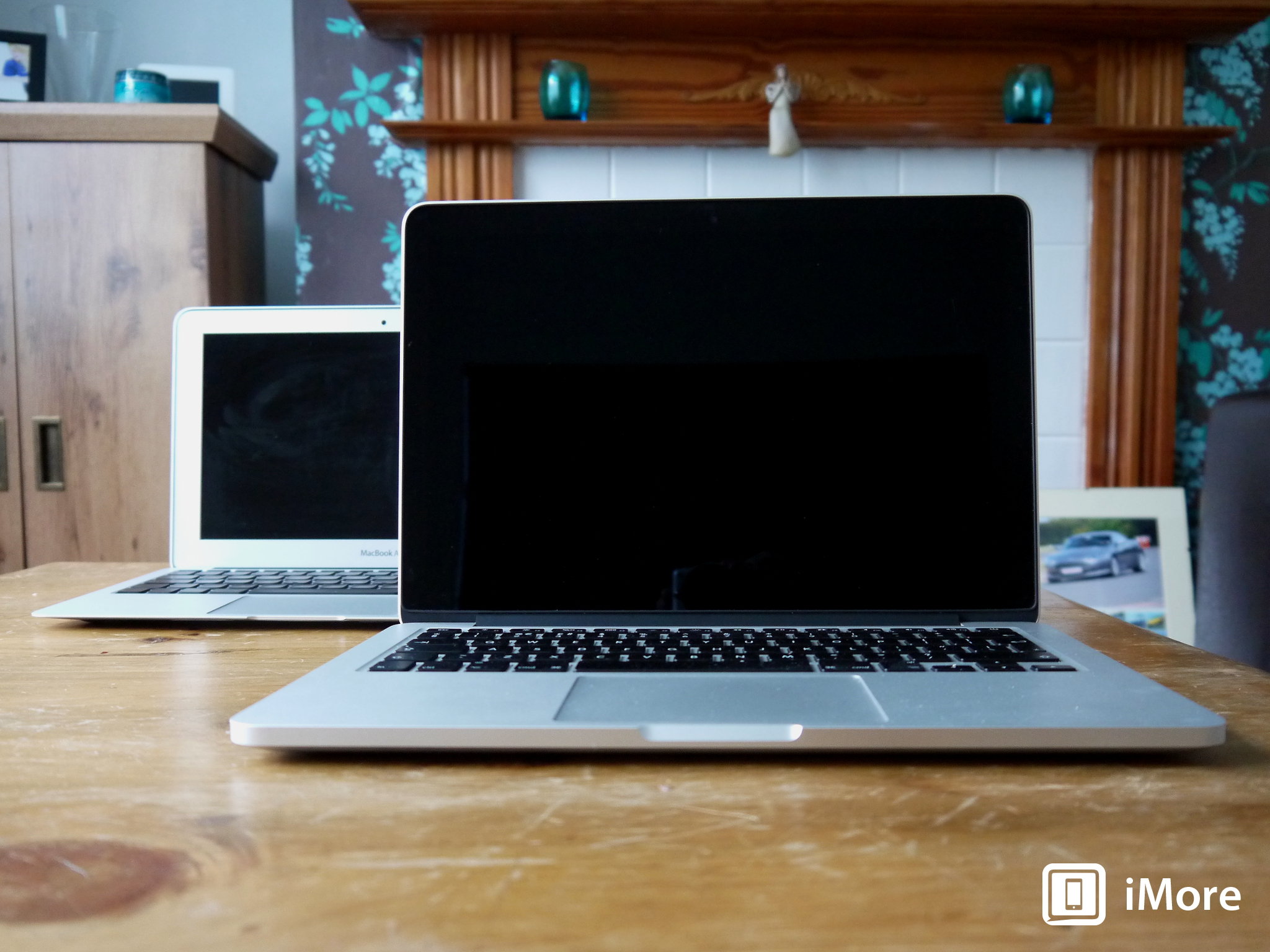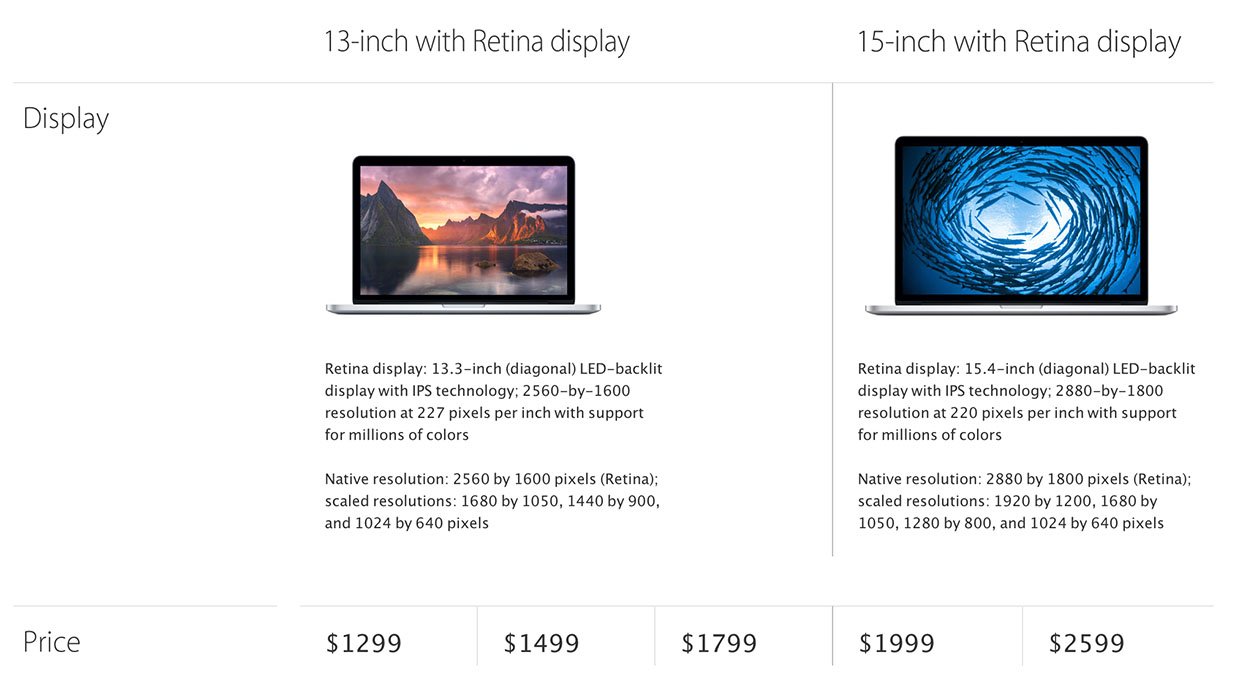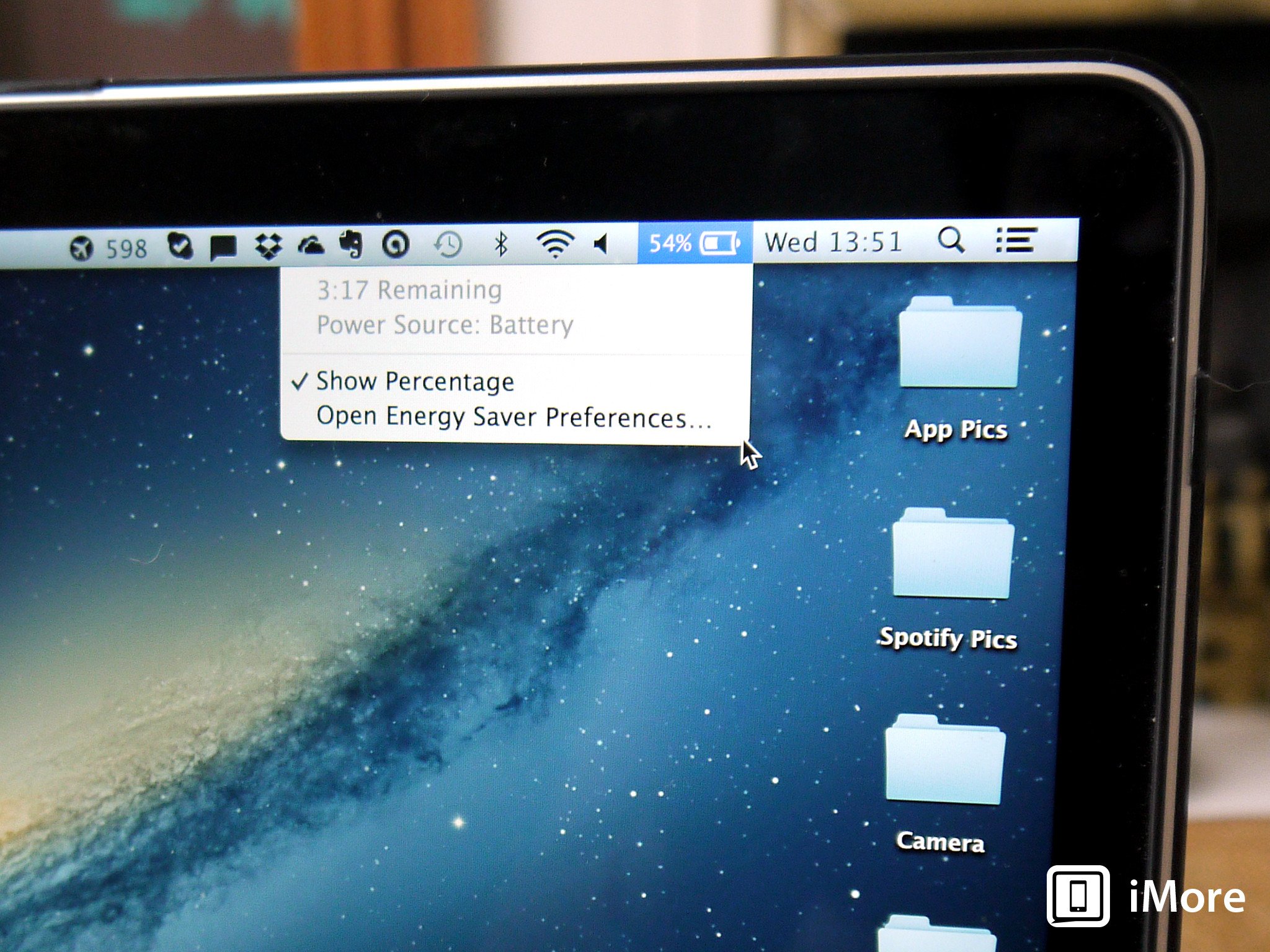MacBook Air

Current MacBook models and their prices
Apple's MacBook line comprises two separate product categories: the MacBook Air and the MacBook Pro. The two systems are differentiated by their size, weight and relative performance, as well as their price.

The MacBook Air is Apple's lightweight laptop. It comes in two different form factors - 11-inch and 13-inch. It's Apple's least expensive laptop, starting at $899. The 11-inch model costs $899, the 13-inch model costs $100 more, $999.
Base models in both sizes come equipped with 1.4 GHz processors, 4GB of RAM and 128 GB of Solid State Drive (SSD) storage. The SSD works using PCI Express, or PCIe, dramatically faster storage interface than Serial ATA (SATA), used on older systems.
You can configure to order the MacBook Air with a faster processor, more RAM and more storage capacity. RAM and CPU speed can't be altered after the fact. SSD storage is upgradable, though not easily - Apple doesn't make the SSD user-accessible, so if you decide you need more storage you'll either have to take the MacBook Air apart or have a technician do it.
The "standard" 13-inch MacBook Pro is the next model up. It's priced at $1,099.
That system is the only Mac left that includes an internal optical "SuperDrive." It also sports 4GB of RAM and a SATA-connected 500 GB hard disk drive, making it the last Mac laptop that still uses a regular hard drive, too. The processor is clocked at 2.5 GHz. Customization options include a faster processor, more memory and different storage options including a larger hard drive or SSD.

For $1,299, you can have the new MacBook Pro with Retina display. It comes equipped with a 2.6 GHz dual-core i5 processor, 8GB of RAM and 128 GB of SSD storage. Retina display-equipped MacBook Pros eschew the conventional hard drive and internal optical drive found in the regular 13-inch MacBook Pro; as a result the Retina display models are thinner and lighter than their conventional alternatives.
The 15-inch MacBook Pro with Retina display brings up the rear. It's equipped with a 2.2 GHz quad-core i7 processor, 16 GB RAM and 256GB of SSD storage. It uses Intel Iris Pro integrated graphics. This year, the Retina display model is the only 15-inch model Apple makes. It's priced at $1,999.
There's a higher-end 15-inch MacBook Pro with Retina display worth mentioning separately - it's the only model that sports a discrete graphics chip. Equipped with a 2.5 GHz quad-core i7 processor, it also includes Nvidia GeForce GT 750 graphics. It's Apple's extreme performer, with a price to match - $2,499.
Just like other MacBooks, MacBook Pros with Retina display can be configured to order with faster processors or more storage capabilities.
Battery Life

An important consideration for your next laptop should be how long you'll be able to work on it away from a power outlet. After all, carrying around your power cord with you all the time means more bulk, which sort of defeats the point of having a portable computer in the first place.
The diminutive 11-inch MacBook Air sports about 9 hours of life (surfing the web; you'll see about an hour less if you're watching videos). The 13-inch MacBook Air, which has almost a third more battery capacity, can last to up to 12 hours without needing to get plugged back in. This model currently rules the roost in terms of battery capacity.
If watching downloaded movies is your bag, an improvement to the 2014 refresh of the MacBook Air yields better battery life when watching movies downloaded from iTunes; up to 9 hours on the 11-inch model and up to 12 hours on the 13-inch model.
The 13-inch MacBook Pro with Retina display manages to eke out a very impressive 9 hours, despite its high-resolution screen. And the 15-inch MacBook Pro with Retina display also manages a respectable 8 hours, despite all the heavy-duty hardware under the hood.
You can expect the standard 13-inch MacBook Pro, with its 2012-era tech under the hood, to require a recharge after about 7 hours.
No comments:
Post a Comment